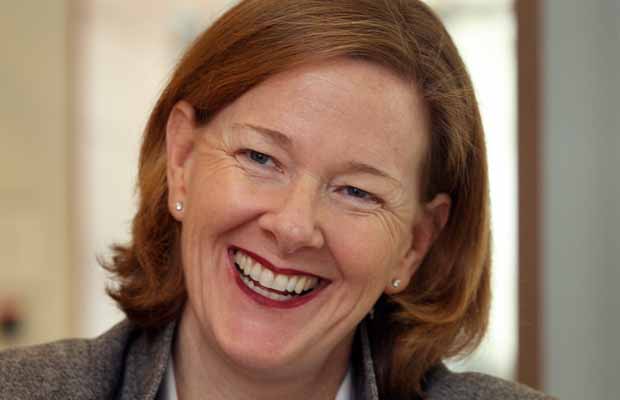EDMONTON – Alison Redford certainly took her own unique path to the top – one that was equal parts tenacity, unconventionality and scorched earth.

She was born on March 7, 1965 – a day before the first U.S. combat troops arrived in Vietnam. In Africa, Rhodesia was declaring its independence from Britain and renaming itself Zimbabwe, a country where Redford would later work to implement democratic reforms.
She was born in Kitimat, a coastal town in northern British Columbia, built in the 1950s by aluminum giant Alcan.
Her father was an electrician and the family travelled the world going where the work was, even as far away as Borneo, in southeast Asia.
The family eventually landed in Calgary, where Redford grew up and attended Bishop Carroll High School.
Redford truly is a child of the West: born in B.C., schooled in Calgary and then at the University of Saskatchewan in Saskatoon where she earned a law degree.
After school she went right into conservative politics, working in the late 1980s in the office of then prime minister Brian Mulroney and also for secretary of external affairs Joe Clark.
By 1990, the 25 year-old was back in Calgary working as a lawyer, but later spent more than a decade travelling the world.
Redford trotted to globe to countries suffering through chaos and despair, working to bring about judicial and democratic reforms.
She was in Zimbabwe, Mozambique, Uganda, Namibia, Bosnia, Serbia, Vietnam and the Philippines.

Get breaking National news
In 2005 the United Nations put her on a team supervising elections in Afghanistan. It was there, Redford would say later, that she gained life-long experiences. She recalled women in Afghanistan, daughters in tow, coming from miles around to pack dingy halls to hear her talk about the freedom and empowerment that can come to women by casting a ballot.
In 2008, Redford was in her fourth decade and ready for a change. She ran for the provincial Progressive Conservatives in former premier Ralph Klein’s old riding of Calgary-Elbow. The constituents there are a mix of middle-class and high-income earners.
Redford squeaked out a victory over Liberal rival Craig Cheffins in the sweeping party win under Premier Ed Stelmach. A rising star, she was immediately installed in cabinet as justice minister.
Under Redford, Alberta undertook a safer communities initiative to find new approaches to stopping street crime. The plan tries to stop crime at the source by creating better communities and giving young people more opportunities.
Under the initiative, there is more collaboration among police and enforcement agencies. There is also recourse to seize the proceeds of crime.
When Stelmach announced in January he was resigning, Redford quit the justice job just a few weeks later in order to avoid a conflict of interest while she ran for the top job.
Her campaign strategy was patterned after the same grassroots support that last year catapulted Naheed Nenshi, an obscure business professor, into the mayor’s chair in Calgary.
One of the architects behind Nenshi’s win, Stephen Carter, also ran Redford’s campaign. The focus, he said, was on finding “hyper-engaged” supporters and community leaders who would jump on the Redford bandwagon and tell 200 friends about it on the Internet. Those 200 would, in turn, tell 200 more.
Carter’s message was not just about selling policy – it was also about selling a person, and her story.
With Redford, the message was progressive change. Her campaign logo was dressed up in pacific blues and greens. The logo was an orange tipped torch that resembled that of Amnesty International.
Redford herself was made over. Her thick librarian glasses were tossed out and the pulled back hair was let down over her shoulders. Buttoned-up shirts were replaced with wide, open collars. And she did a video, riding a roller-coaster with her nine-year-old daughter Sarah.
Success came on the first ballot. While her rival candidates relied on the traditional support of other caucus members to beat the bushes for votes in their respective ridings, Redford had the support of just one backbencher. But she still finished second, with 11,127 votes.
Then just days before the second ballot, tragedy struck when Redford’s 71-year-old mother Helen died of an infection in hospital in Calgary.
Redford had just 24 hours to grieve before she went back on the campaign trail, winning praise for a polished performance under trying circumstances in a televised debate.
“Yeah, it was hard, sure it was hard,” Redford told reporters after the debate. “But I thought about my mom and my granny and my nine-year-old.
“And this morning when I told Sarah about Mom passing last night, after we had a really long cry, she said to me, ‘Well, Mommy, you can’t cry on TV tonight.’
“And I thought ‘OK, I won’t. I’ll just do the debate. So that’s what I did.'”







Comments